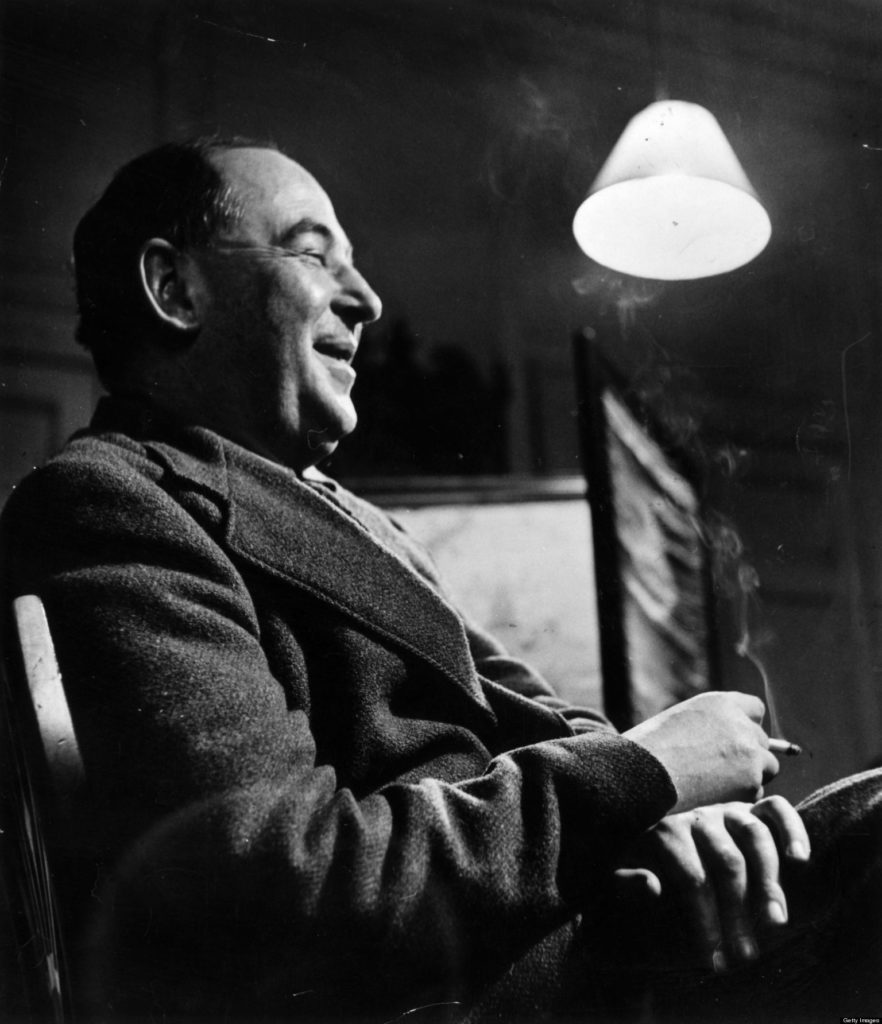
When the atomic age dawned in 1945, the utter devastation of such a bomb awed the world, and many were driven to a fear that the entire world might be destroyed. C. S. Lewis lived through that initial shock but didn’t allow the fear to grip him. In an essay written in 1948, “On Living in an Atomic Age,” he brought his common-sense Christian mind to the topic.
How should one live in an atomic age, he asks? “I am tempted to reply: ‘Why, as you would have lived in the sixteenth century when the plague visited London almost every year, or as you would have lived in a Viking age when raiders from Scandinavia might land and cut your throat any night; or indeed, as you are already living in an age of cancer, an age of syphilis, an age of paralysis, an age of air raids, an age of railway accidents, an age of motor accidents.'”
In fact, ever since those first atomic bombs were detonated over Japan, no one has died from another such bomb. Lewis’s common sense continues:
In other words, do not let us begin by exaggerating the novelty of our situation. Believe me, dear sir or madam, you and all whom you love were already sentenced to death before the atomic bomb was invented: and quite a high percentage of us were going to die in unpleasant ways. . . .
It is perfectly ridiculous to go about whimpering and drawing long faces because the scientists have added one more chance of painful and premature death to a world which already bristled with such chances and in which death itself was not a chance at all, but a certainty.
New fears crop up all the time. What are our latest ones? We’re all going to die due to global warming? The coronavirus is going to sweep through the planet and we’re doomed? Do we allow fears to make us paranoid? Where’s the line between proper concern and genuine paranoia? Lewis brings us back to our senses—and the truly Christian perspective—when he says,
The first action to be taken is to pull ourselves together. If we are all going to be destroyed by an atomic bomb, let that bomb when it comes find us doing sensible and human things—praying, working, teaching, reading, listening to music, bathing the children, playing tennis, chatting to our friends over a pint and a game of darts—not huddled together like frightened sheep and thinking about bombs.

Lewis reminds us, “They may break our bodies (a microbe can do that) but they need not dominate our minds.“
When we become so enmeshed in fear that we can hardly think of anything else, we become useless for what God has called us to do.
“If there is no God and no life of some quite different sort somewhere outside Nature,” Lewis notes, “then all stories will end in the same way: in a universe from which all life is banished without possibility of return.” That, however, is not the Christian vision of what life is. We are not just a “meaningless play of atoms in space and time . . . that by a series of hundredth chances . . . has (regrettably) produced things like ourselves.”
Christians can face whatever comes because we know the One behind this creation. We know we are made in the image of God and have inherent value in His eyes. We know there is a life beyond this one we now experience.
Lewis again:
What the wars and the weather (are we in for another of those periodic ice ages?) and the atomic bomb have really done is to remind us forcibly of the sort of world we are living in and which, during the prosperous period before 1914, we were beginning to forget.
And the reminder is, so far as it goes, a good thing. We have been waked from a pretty dream, and now we can begin to talk about realities.
And here’s a Biblical reminder to go along with that.
When the Son of Man comes, will He find faith on earth?
Luke 18:8
